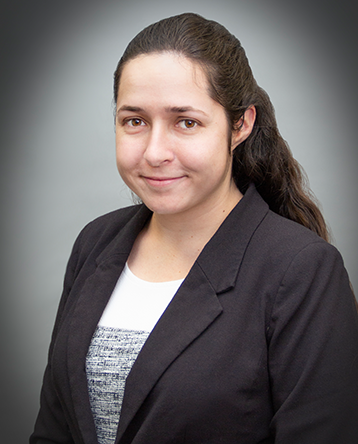Victoria Webster-Wood
Associate Professor, Mechanical Engineering
Courtesy Appointment, Biomedical Engineering, Materials Science and Engineering, Robotics Institute
Associate Professor, Mechanical Engineering
Courtesy Appointment, Biomedical Engineering, Materials Science and Engineering, Robotics Institute

Victoria Webster-Wood received her B.S. in 2012, M.S. in 2013, and Ph.D. in 2017 in mechanical engineering at Case Western Reserve University, receiving graduate support as an NSF Graduate Research Fellow and GAANN Fellow in the Biologically Inspired Robotics Lab. She subsequently completed her postdoctoral training as a Ruth L. Kirschstein NRSA Postdoctoral Fellow in the Tissue Fabrication and Mechanobiology Lab at the same institution.
Upon joining Carnegie Mellon University, she established the CMU Biohybrid and Organic Robotics Group (B.O.R.G). The B.O.R.G.’s research focuses on the use of organic materials as structures, actuators, sensors, and controllers toward the development of biohybrid and organic robots and biohybrid prosthetics.
2017 Ph.D., Mechanical Engineering, Case Western Reserve University
2013 MS, Mechanical Engineering, Case Western Reserve University
2012 BS, Mechanical Engineering, Case Western Reserve University
CMU Engineering
In a lab where biology meets robotics, Carnegie Mellon researchers are tackling a unique challenge: how do you control a robot made of living muscle that grows stronger every time it moves?
CMU Engineering
Researchers are developing microscale robots with customizable movement, aiming to navigate the body for targeted therapies using advanced tissue engineering.
Mechanical Engineering
Vickie Webster-Wood, in collaboration with researchers at University of California San Diego and Purdue, has launched a research network that brings together leading experts to tackle critical challenges in autonomous systems through the integration of mechanical and computational intelligence.
Mechanical Engineering
While many roboticists turn to nature to inspire their designs and breakthrough research, Vicki Webster-Wood’s lab seeks insights from a surprising model organism: the humble sea slug.
Mechanical Engineering
The annual Watch List spotlights early career professionals who have already left their marks on industry, academia, and society.
CMU Engineering
To support the development of new therapies for neurodegenerative disease and advance biohybrid robots, Jessica Zhang and Victoria Webster-Wood will lead a project to develop computational tools to predict neuron growth and transport regulation.
CNN
MechE’s Vickie Webster-Wood was quoted by CNN about a new robot developed by researchers at Cornell University that uses a mushroom’s mycelium in its hardware, allowing the robot to respond to the environment.
Mechanical Engineering
Bio-hybrid robotics creates unique ethical challenges, say researchers
CMU Engineering
Studying Aplysia californica, or sea slugs, can tell us a lot about neuromuscular systems and open up avenues for more controlled animal experiments.
CMU Engineering
As an undergraduate student in the College of Engineering, Justin Lam was able to design his own major track inspired by his passion for helping aging populations, which he called geriatric engineering.
CMU Engineering
Engineering undergraduate students had a wonderful showing at Meeting of the Minds, displaying posters, giving presentations, and demonstrating projects they have worked on this past academic year.
Nature
MechE’s Victoria Webster-Wood talks with Nature about biohybrid robots. “A biohybrid is really any robot that combines both biological materials and synthetic materials,” she says.